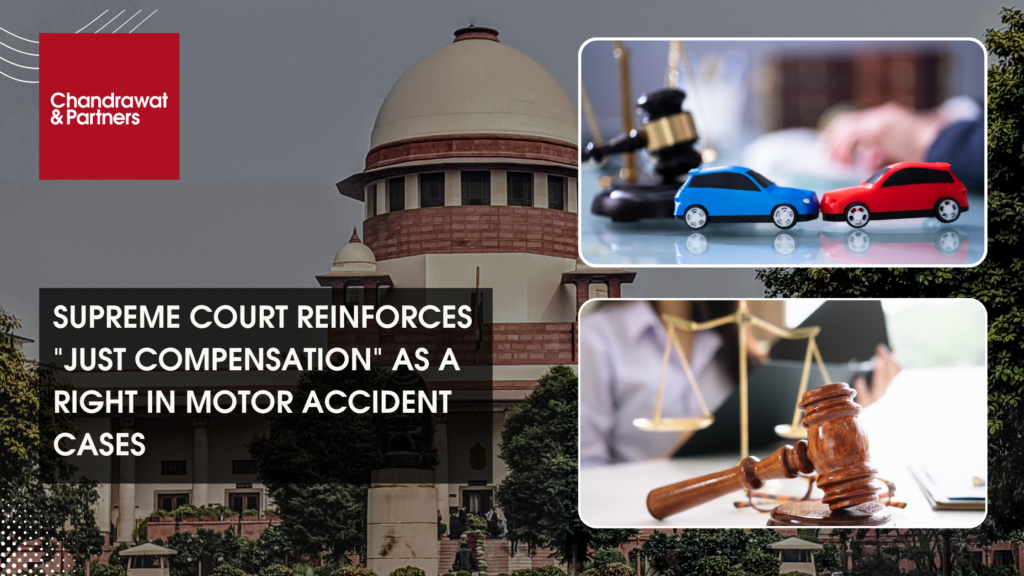Home > Recent Judgements > Supreme Court Reinforces “Just Compensation” As A Right In Motor Accident Cases
Jan 08, 2025
INTRODUCTION
The Supreme Court of India, in the landmark case of Atul Tiwari v. Regional Manager, Oriental Insurance Company Limited, has reinforced the fundamental principle that “just compensation” in motor accident cases is a right, not a privilege. This significant judgment emphasizes the need for courts to ensure that accident victims receive adequate compensation that truly reflects their losses and suffering.
The case involves petitioners, a B.Tech student, who suffered life-altering injuries in a 2009 road accident. On October 3, 2009, while traveling as a pillion rider, Petitioner became a victim of reckless driving when a truck, being driven on the wrong side of the road, collided with the motorcycle. The accident resulted in severe injuries, leaving him with 60% permanent disability, impaired speech, and limited mobility.
The case’s journey through the legal system reflects the challenges victims face in securing adequate compensation. Initially, the Motor Accidents Claims Tribunal (“MACT”) in Bhopal awarded ₹19.43 lakh. This was later enhanced to ₹27.21 lakh by the Madhya Pradesh High Court. Finally, the Supreme Court, recognizing the inadequacy of these amounts, significantly increased the compensation to ₹48 lakh, matching the claimant’s original plea.
KEY ISSUES
- Whether the compensation awarded by the lower courts was adequate and just considering the victim’s injuries and circumstances?
- Whether the method of calculation adopted by the tribunals properly accounted for all relevant factors including prospects and income loss?
- Whether the courts should take a more holistic approach in determining compensation in motor accident cases?
JUDGMENT
The Supreme Court enhanced the compensation amount, significantly modifying the award granted by the lower courts. The Court emphasized that tribunals and courts must adopt a more comprehensive approach when calculating compensation, considering:
- The victim’s age and future earning potential.
- The severity and permanency of injuries.
- Impact on quality of life and ability to earn.
- Medical expenses and future care needs.
OBSERVATION
The Court emphasized that perfect compensation may be impossible, but courts must ensure victims receive full and fair compensation for their suffering.
The judgment stressed the need for a comprehensive evaluation of both immediate and long-term impacts of accidents on victims’ lives.
The Court noted that while money cannot substitute a life lost or irreparably altered, adequate compensation is crucial for supporting victims’ rehabilitation and future needs.
The judgment significantly advances the jurisprudence on motor accident compensation, establishing clearer guidelines for courts while emphasizing the fundamental right to just compensation. It sets a valuable precedent for future cases, ensuring a more comprehensive and victim-centric approach to compensation assessment.
This landmark decision not only provides relief to the immediate victim but also establishes important principles that will guide courts in similar cases, ensuring that accident victims receive compensation that truly reflects their losses and supports their rehabilitation and future needs.
For more information or queries, please email us at
[email protected]





